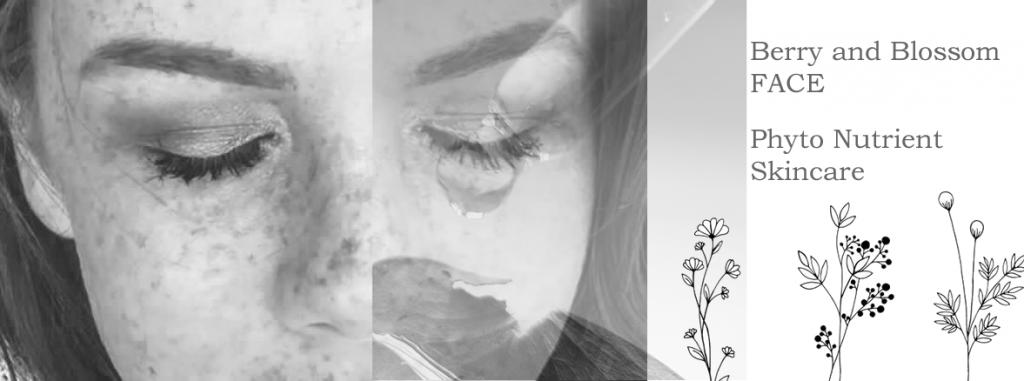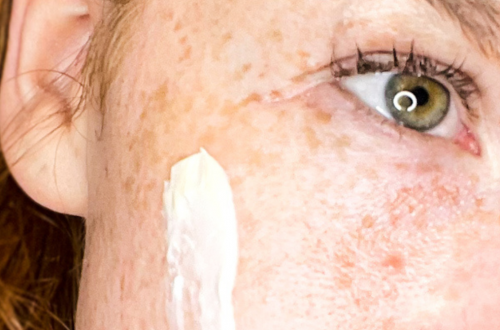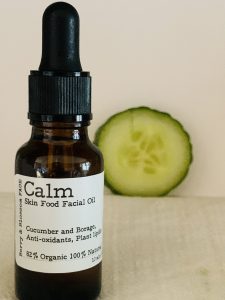The first letter in FACE.
Vitamins in skincare bring benefits, such as abilities of vitamin A – aka retinol works to help the skin produce collagen for a plumper and smoother complexion. Vitamin C which protects against the damaging effects of pollution, while Vitamin E is a rich antioxidant. So what benefit can vitamin F bring to your skin?
What is Vitamin F
Vitamin F is a term that refers to the combination of two essential free fatty acids: linoleic acid (LA) and linolenic acid (ALA)
Vitamin F is an essential fatty acid from the omega-6 family. The F actually stands for FAT, which might not sound very enticing, but this unknown skincare hero performs to maintain and repair the skin barrier (Stratum Corneum).
Our unsung hero of healthy skin is our skin barrier which helps to keep the moisture in and pollutants out. Made from a blend of lipids or fats, including ceramides. It is the skin barrier that is target of good skin food which helps replace reducing hydration, protection and nourishment.
If our barrier becomes compromised, then skin can become red, shiny, sore, constantly dry, uncomfortable or itchy.
Where do you find it.
Linoleic and Linolenic acids aka Vitamin F is found in plant oils like Rosehip, Sunflower, Argan, Chia, Olive and Flaxseed oils.
As the body cannot naturally produce omega-6 it’s important to include it both in your diet and your skincare routine.
In skincare for example the area percentage of linoleic acid in Borage oil is 38.47%, in Evening Primrose oil is 74%, in Sunflower oil 71%.
Fortunately, it’s very easy to boost your supply of vitamin F through both diet and skincare. Increase your daily consumption of Vitamin F by adding flaxseeds, pumpkin seeds and raw sunflower seeds to your diet.
For skin, it is more effective by being applied topically in skincare formulations.
How does it benefit your skin
Vitamin F is used within the skin to make ceramides. These fat lipids build the outermost, visible layer of our skin known as the skin barrier, Stratum Corneum. Ceramides help create a barrier to prevent permeability. This locks moisture into your skin, which helps prevent dryness and irritation. Ceramides cement skin cells together keeping skin strong, hydrated and smooth, and blocking out pollution, UV light, infections and irritants.
When skin is lacking in vitamin F it can appear dry, flaky, red, inflamed and be more prone to acne, eczema and sensitivity. More recently, several studies have shown that those suffering from acne have low levels of linoleic acid in their sebum contributing to clogging pores, hense inflammation.
The anti-inflammatory essence of free fatty acid in the sebum,particularly linoleic and lauric acids were found to prevent acnes. Therefore, plants containing linoleic acid may be applicable in acne lesion reduction. https://onlinelibrary.wiley.com/doi/full/10.1111/j.1468-2494.2011.00647.x.
Fatty Acids natural source – Plant oils
There are two main fatty acid categories to think about when it comes to skincare: essential linoleic acids (Vitamin F) and non essential oleic acids. These two types are most relevant when it comes to skincare.
Vegetable, nut and seed oils contain both, but are defined by which they are highest in.
Generally speaking, oils that have a higher percentage of linoleic acid, Vitamin F, are lower on the Comedogenic scale, don’t clog. These are lighter, absorbent and also offer other vitamins and antioxidants.
Those with higher oleic acid, are heavier and prone to clogging pores. But offer barrier protection, hydration and are restorative.
Products that contain multiple ingredients will avoid oiliness and provide a wealth of nourishment. So it’s good to know that the two categories when combined in a formula will contribute to a healthy skin. Along with other benefits in the containing oils , Vitamin F is a strong prescription for the complexion.
Vitamin F is best introduced into the skin with oil based serums or products rather than water based topicals so it’s important to chose high grade products.
Vitamin F’s Alchemy
**As an omega-6 essential fatty acid, vitamin F is a hydrating ingredient that also protects the skin’s barrier and retains moisture.
**Reduces inflammation: Vitamin F may be beneficial for those with inflammatory skin issues. Vitamin F helps reduce inflammation as well as regulate healthy cell function, and excessive water loss
**Boosts recovery from environmental exposure which damage healthy skin cells, and provides an added layer of sun protection.
**Vitamin F is best for sensitive skin and atopic conditions such as rosacea and acne blemishes. It calms inflammation and soothes troubled skin.
**Provides a youthful glow: In general, anyone looking for healthier and younger-looking complexion can benefit from frequent use of fatty acids like Vitamin F, in order to avoid dryness, rough texture, irritation, allergies, inflammation, and other signs of compromised skin.
Vitamin F Skincare
Vitamin F’s omega-6 rich structure lends itself to moisturising oils and creams, working deeply to nourish and smooth stressed, dry skin.
For those with dry, dull skin Every Day Moisturizer, Organic Rosehip Rescue Balm or Nocturnal Boost Serum. Providing Vitamin F from Rosehip oil and more from Sea buckthorn, to nourish the skin barrier for a smoother and more unified complexion.
To fight inflammation, blemishes try Calm Face Oil with Borage and high Linoleic content, Cucumber oil. An ultra-light daily hydrator that is vitamin F-rich and help to rebalances, calm and strengthen the ceramides of the skin barrier. Replenishing Baobab oil is in Night Time moisturiser.
The most notable oils that are high in Vitamin F (+ used in Berry and Blossom Face formulations)
- Argan oil +
- Evening primrose oil+
- Grape seed oil+
- Sunflower oil+
- Baobab oil+
- Pumpkin seed oil+
- Sweet almond oil+
- Hemp seed oil
- Sunflower oil+
Walnut oil (also high in omega–3 fatty acids)
Less well-known oils high in linoleic acid are:
- Borage seed oil +
- Black currant seed oil
- Cucumber seed oil+
- Hazelnut oil+
- Raspberry seed oil+
- Rosehip seed oil+
The good news is that most oils contain both essential and non essential acids in different amounts. This brings a wealth of nourishment to your skin. Nature working in harmony.





